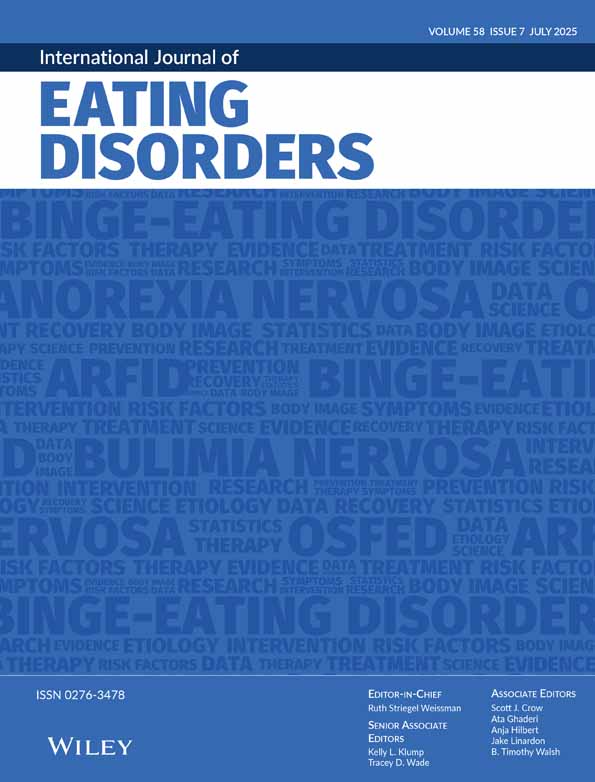Illusory correlation for body type and happiness: Covariation bias and its relationship to eating disorder symptoms
Abstract
Objective
The current study investigates covariation bias (illusory correlation) in the perceived association between happiness and body type, as well as the association between covariation bias and eating disorder symptoms.
Method
Undergraduate women (n = 186) rated pictures of women on a variety of attributes, including happiness, degree of overweight, and attractiveness. Later, they were asked to judge the level of covariation between these attributes that was present in the stimuli that they had rated. Participants also completed the Eating Disorder Examination-Self-Report Questionnaire (EDE-Q).
Results
Participants reported that there was a negative association between weight and happiness in the stimuli that they had rated, even though the true correlation in the data was zero. This covariation bias was stronger among participants with higher levels of eating disorder symptoms.
Discussion
The results suggest a cognitive bias that may play a role in maintaining and enhancing concerns about shape and weight in symptomatic women. © 2005 by Wiley Periodicals, Inc.




